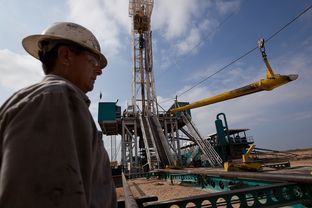Last week, we posted a blog article discussing the hydraulic fracturing (“fracking”) process as well as environmental concerns associated with the practice. Although there is no conclusive evidence that the fracturing of shale formations poses hazards to the environment, the preparation, construction, and drilling of well sites – in addition to disposal of flowback fluids, and transportation of materials – have been shown to represent potential threats to groundwater quality.
Texas Railroad Commission revisits fracking guidelines
Already considered a pioneer in the regulation of hydraulic fracturing, the Railroad Commission of Texas (RRC) is revising, strengthening, and improving current rules and regulations regarding all aspects of the fracking process. According to an article in The Texas Tribune, the latest RRC rule changes are expected to be announced as early as this week and will focus on well construction and integrity. Key proposed rule changes include the following:
- Improved quality of well casings
- Pressure testing of casings being prepared for fracking
- New requirements for components of blowout preventer systems
- Ban on fracking operations at non-cemented wells when the formation being fracked is located within 1,000 vertical feet of a usable aquifer
The Texas Tribune also reports that this round of rule changes will be the most extensive since the 1970s during the height of the Texas oil boom. Proposed rule changes regarding the disposal of flowback fluids are also a priority, and stricter rules and regulations could be implemented in the near future.
Fracking and groundwater contamination
Hydraulic fracturing has been taking place for decades; however, it wasn’t until the late 1980s that fracking was combined with horizontal drilling to access deep formations in the Austin Chalk. In a Groundwater Protection Council study (pdf) completed last year, faulty drilling or improper well completion resulted in 10 filings of groundwater contamination in Texas from 1993 to 2008. During this time period, thousands of wells were drilled for fracking purposes, and RRC records “do not indicate a single documented water contamination case associated with the process of hydraulic fracturing in Texas” in over 60 years of hydraulic fracturing.
Rules and regulations for hydraulic fracturing remain a highly public and controversial topic as more formations are discovered around the country and throughout the world. In the state of Texas, the Railroad Commission is charged with setting rules to prevent groundwater contamination and other potential environmental threats – while simultaneously ensuring the viability of the production industry.
Economic impact of fracking
Hydraulic fracturing is a key contributor to the United States achieving energy independence and was an important topic of discussion during the presidential debates. The American Petroleum Institute (pdf), which represents industry producers, believes most Americans are not well informed about the benefits of hydraulic fracturing and its overall economic impact. API believes “hydraulic fracturing will account for nearly 70 percent of natural gas development in the future,” create over 400,000 new jobs, and contribute roughly $4.4 billion in tax revenues.
 Until next time,
Until next time,
Adam Marshall
Program Manager – Aerials & Historic Mapping
amarshall@banksinfo.com

